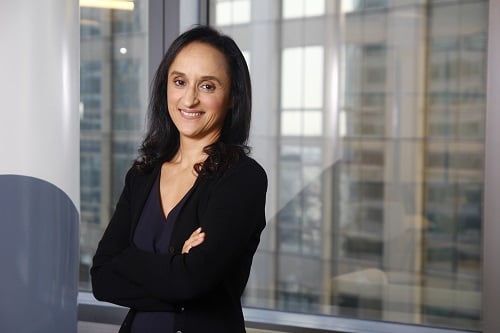

Myriam Moufakkir, recently appointed chief operating officer of Asian markets at AXA, shared her insurance journey with Insurance Business, as well as how the industry touches people – both insurance professionals and clients.
“I actually spent the beginning of my career in the banking industry and at some point I realized that the insurance industry was more human,” she said. “It brings a purpose to what you are doing for people, which is ultimately to provide protection.”
She entered the insurance industry by way of Aviva, before joining AXA in 2005 in its home base of Paris, where she held various senior roles related to business transformation and digital. In 2016, she relocated to Hong Kong when she was named regional chief information officer of AXA Asia, prior to taking her current role as chief operating officer.
“To me, what we do in the insurance industry is really meaningful and impactful for people, and can be reinvented,” she said.
According to Moufakkir, her current role’s biggest challenge is to keep up with the innovation and pace of start-ups, and to build the foundation of a mature company at the same time.
“We have to build fast, make decisions, invest in our future, but then at the same time we have to be sustainable,” she said. “If we have a technology failure, it impacts our customers. What’s striking in Asia, is that much of the competition is coming from the insurtechs whose investment scale is much bigger. Equally, they do not yet have the same scale of customers to support as we do in AXA. In managing the competition, we still have to stay true to the AXA brand and serve our customers well.”
While a global brand like AXA has many advantages, it also has a larger responsibility due to customers’ expectations.
“When people come to AXA as a customer, because of our global reach, we inspire security and stability,” she explained. “So while we are trying to grow fast, we are also building for the long-term to continue to be a sustainable and successful business.”
Moufakkir shared that during her previous role, she was in charge of building a global collaboration platform for AXA, which helped the insurer take care of its people during an emergency.
“During one of the big storms in the early 2010s in the US, New York City was under water and the entire business continuity team had to rapidly move key employees to the north of the city,” she said. “They kept track of people and made sure they were safe through that platform. It enabled us to get connected to our people to make sure they were OK, to inform them not to come to the office, and to communicate alternative working arrangements so that the business continued to operate. We could finally mass communicate with our stakeholders.”
Developing and launching that platform wasn’t easy, she shared. While actual development took about a year, deployment took around five years – from 2010 to 2015. This was due to the differences between markets, such as local cultures and data privacy regulations.
“Anticipating globalization in any organization is key,” she said. “The platform was built right after the 2008 financial crisis. We wanted to be able to maintain contact with all of our people, regardless of where they were on the globe. We achieved that through this platform, creating the ability to collaborate and a method for mass internal communication.”
Moufakkir added a word of caution when developing advanced technology. She firmly believes that it must go hand-in-hand with training people to get the best out of the new technology.
“Sometimes I feel that we build and then forget about the second piece, which is to train the users,” she said. “Technology moves very fast. I feel that we should balance our spending in enabling technology with investing in educating and supporting our employees as we introduce new ways of working. We need to focus more on bringing people up to speed so that they can understand technology better and how technology, when put together with the right minds, stimulates creativity.”
Linking humans and technology extends outside of the office and into the home for Moufakkir.
“I always tell my sons that science and technology are so important, and that they need to develop a real appetite for understanding the alphabet, the foundations of science and technology,” she said. “It has to be become part of their DNA to be successful in the future. And they have to develop the ability to think for themselves. I try to encourage them to develop their own thinking, so that they can make good decisions. If you can’t make decisions, you will be driven by other people, and unable to make your own choices. This advice is the best gift that I can offer them.”
Lastly, Moufakkir advised young insurance professionals and prospective new entrants to learn and continue to innovate, while keeping the core purpose of insurance in mind.
“My advice would be especially directed to the young generation, to think outside the boundaries of our legacy, and to be part of an industry that brings real value to society,” she said. “I’m not denying the fact that the insurance industry may look old-fashioned from the outside. Come to the industry with fresh eyes, challenge the status quo, and really think outside of the existing legacy and environment. The innovation and creativity of the new generation of insurance professionals is vital to our industry.
“At the end of the day, insurance has a real noble purpose to serve and protect people. It is a very fulfilling industry to be a part of.”
